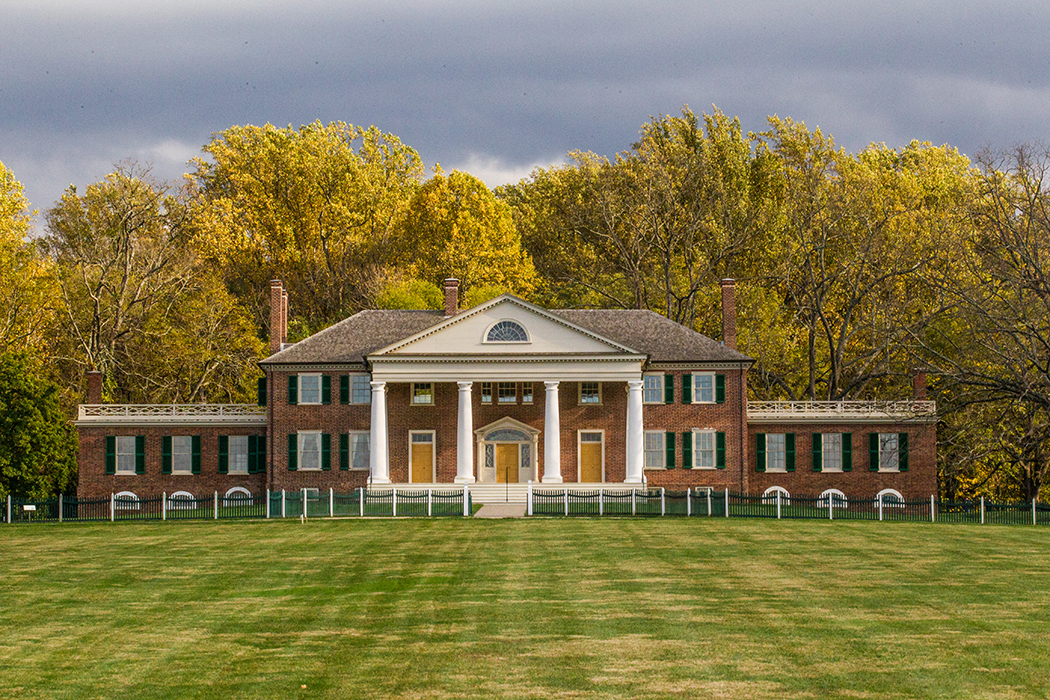Nearly two weeks after the Montpelier Foundation Board voted to reverse an agreement to share power with the Montpelier Descendants Committee, the force of the backlash has dismayed the board’s leadership. The dispute between the board and the committee has also exposed division among some descendants about the future of the fourth U.S. president’s former home.
“I guess I was disappointed because I don’t think it’s been accurately reported,” says Montpelier Foundation Board Chair Gene Hickok. He insists that despite the recent vote, the foundation board remains committed to restructuring to achieve “structural parity” with descendants of enslaved people at Montpelier and is simply broadening its approach to arrive at that goal.
“And all of a sudden they’re ascribing nefarious motives to the board,” he says, calling it “very disappointing.”
The stage for conflict was set last June when the Foundation board voted to rewrite its bylaws and announced an “unprecedented board restructuring” that would “establish equality with the Montpelier Descendants Committee in the governance of James Madison’s Montpelier.” A foundation press release at the time described the lofty ambition of providing “a national model for resolving historic imbalances in decision-making, power, and authority.”
At the end of March, however, the board voted to reverse course. An attorney representing the MDC says things began to fall apart soon after the June vote.
“What happened after that is that the new CEO and the chairman began the process of actually engaging in the power-sharing, and the descendants asked these reasonable questions like, ‘What kind of changes are we going to make here?’ And that just was met with a real hard line,” says Greg Werkheiser of the Richmond-based law firm Cultural Heritage Partners.

File photo.
The board’s reversal has been excoriated in the press by Montpelier employees, some of whom allege a toxic work environment created by foundation board leadership. The National Trust for Historic Preservation, which leases James Madison’s Montpelier to the Montpelier Foundation, and the American Association for State and Local History have also criticized the board’s reversal.
“The news of recent board action by the site can be seen as taking a big step backward in the fight for inclusion instead of pushing our field forward in a way that makes a difference at the core of this historic property,” says a statement on the association’s website.
Werkheiser alleges that the board wanted to benefit from the appearance of structural parity with the descendants, but wasn’t committed to the reality of shared power.
“That’s something that is a known pattern to the Black community,” he says. “Which is, we want you to be seen so that we can fundraise off of your presence. But we don’t want to really hear what you have to say.”
“It’s just not true,” says Hickok. He says that tensions came to a head at the board’s November meeting when the MDC leadership refused to recognize one of four descendants, this one selected by the board rather than the MDC. Hickok says as a result of the MDC’s position that the person would not count toward structural parity, she turned down the board nomination.
“So this, as you can imagine, set off this sort of feud between the board of Montpelier and the MDC going forward.”
From there, Hickok says, communication between the two organizations deteriorated further, and he alleges MDC became oppositional and ordered its members not to work with Montpelier staff.
“We received from the MDC a proposal which, in essence, said, ‘We are willing to not litigate.’” He says the MDC then issued an ultimatum that any board members counting toward structural parity would come only from a list of names the MDC provided.
“That’s not partnership. It’s not collegiality. And that’s not what the original understanding of our relationship would be,” Hickok says, noting that even after the recent reversal, the MDC can still recommend board members.
“This is not a case of going back on our word,” he says. “It is a case of trying to find a way to achieve parity when we had two organizations that can’t agree on how best to get there.”
That justification doesn’t satisfy Bettye Kearse, a retired physician and author of The Other Madisons: The Lost History of a President’s Black Family. Kearse is a descendant of enslaved workers at Montpelier who has studied the history of Montpelier and worked on projects with staff since the early 1990s. One of three foundation board members who were recommended by the MDC and appointed in November, she agrees that the committee wants to choose its own candidates for the board, but ascribes different motives to the board’s reversal.
“I don’t think they were really ready to share power with another organization, particularly an organization of African Americans,” she says. “I think they wanted to revise the bylaws in ways that they would have a stronger control over the stories that Montpelier would tell to the American public. So they didn’t abolish parity, but they did cripple the concept.”
The MDC was formed in 2019 and comprises descendants of enslaved laborers from a variety of Virginia sites including Monticello and Highland in addition to Montpelier.
That is one reason Mary Alexander, a direct descendant of Madison’s enslaved manservant Paul Jennings, doesn’t believe MDC should be the sole voice of descendants.
“We have blood ties to Montpelier, and our approach to Montpelier and what we want from that period is very, very different from the other people who are members of the MDC and don’t necessarily have any kind of blood ties to Montpelier at all,” she says of herself and her family. They only want to focus on preserving Montpelier as a place for future generations.
Alexander claims MDC is a political organization, and says she doesn’t share its interest in broader topics including mandating school curriculum, land conservation or “demanding or asking for reparations, or discussions on it.” She says the board’s recent reversal was fair.
“So now the board is acknowledging that the descendants are not one homogeneous group,” she says.
Kearse says she also has a direct claim to Montpelier.
“I have enslaved ancestors and I’m also a Madison descendant, so I have ancestors buried in the family cemetery and in the slave cemetery,” she says. “And so it’s a place that’s very, very important to me. And, you know, to have this battle over who can tell the whole story is just extremely heartbreaking and disappointing, and I see it harming the image, it’s a very positive image, that Montpelier has been able to develop over at least the last two decades.”
Courteney Stuart is the host of “Charlottesville Right Now” on WINA. You can hear her interviews with Gene Hickok, Bettye Kearse, Mary Alexander, and Greg Werkheiser at wina.com.
